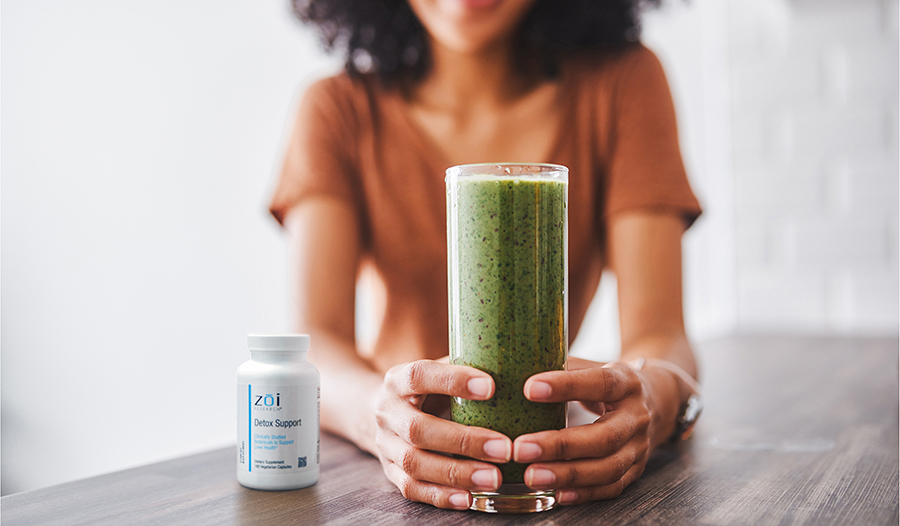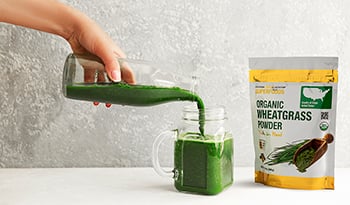7 lépés a test természetes méregtelenítéséhez

A „méregtelenítés” kifejezés több jelentést is közvetíthet, például leírhatja az addiktív gyógyszerek eltávolítását a szervezetből. A megelőző orvoslásban azonban általában metabolikus méregtelenítésre utal. A metabolikus méregtelenítés a vegyi anyagok vagy hulladék szervezetből való eltávolításának alapvető és állandó folyamatát jelenti. Májunk, veseink, bőrünk és nyirokrendszerünk továbbra is keményen dolgozik, méregtelenítve testünket a rengeteg toxintól, amellyel találkozunk.
Egészségesebbek maradunk, ha méregtelenítő rendszerünk jól működik, és kémiai terhelésünk alacsony marad. A kényelmes életválasztás egy korszerűsített világban drasztikusan megnövelte a napi mérgező terhek mennyiségét. Szerencsére számos hatékony életmód-intézkedés, étel és kiegészítő segíthet a szervezetnek a hatékonyabb és gyorsabb méregtelenítésben.
4 Elsődleges okok méregtelenítési folyamatunk támogatására
1. Fokozott környezeti vegyi anyagoknak való kitettség
Bár az élőlények a történelem nagy részében alacsony mennyiségű toxinnak voltak kitéve a környezetben, a körülöttünk lévő vegyi expozíció mértéke exponenciálisan nőtt, és aggodalmat okoz egészségünk iránt. Minél modernebb az életmódja, annál valószínűbb, hogy a toxinok széles skálájával érintkezik, beleértve a peszticideket, gyomirtó szereket, illékony szerves vegyületeket, tartósítószereket, égésgátlókat (ruhákban és bútorokban), műanyagokat, például ftalátokat és biszfenol A (BPA), nehézfémeket (például higany) és még sok mást.
Annak ellenére, hogy egy terhes anya elképesztő képessége táplálni egy növekvő csecsemőt, nem tudja teljes mértékben megvédeni gyermekét a sok vegyi expozíciótól, amellyel ma szembesülünk. A terhes anyákkal végzett tanulmány kimutatta, hogy a környezetből több mint 280 vegyi anyag jut a placentán keresztül a magzatba. Ez bizonyítja a mérgező terhelésünk jelentőségét még mielőtt a lábunkat a föld talajára helyeznénk, és a rendszeres méregtelenítés fontosságát.1
2. A történelem támogatja a méregtelenítés rituáléit
Ha megnézzük a legtöbb ősi kultúrát, rendszeres rituáléik voltak, amelyek időszakos méregtelenítő gyakorlatokat tartalmaztak, mint például indián verejtékházak és gyógynövények ivása. Az „orvosok” gyakran különféle készítményekkel kezelték a betegségeket, amelyek miatt az alanyok megszüntették vagy izzadtatták. Ezek az ősi rituálék hozzájárultak a véráramlás, a nyirok áramlásának, az emésztés és a vizelés növeléséhez, hogy a hulladékot meggyógyítsák.
3. Link a korai öregedéshez
A tudomány közvetlenül korrelálja a metabolikus toxin terhelést a megnövekedett oxidatív stresszel. A megnövekedett oxidatív stressz hajlamos minket a korai öregedésre, gyulladásra és krónikus betegségekre — minél több vegyi anyag van a rendszerünkben, annál valószínűbb, hogy előrehaladunk az öregedésben és krónikus betegségben szenvedünk.
4. Link a gyermekek hormonális egyensúlyhiányához
Sok „modern korú” toxin - amely bőségesen van vízünkben, élelmiszerekben és élelmiszercsomagolásainkban - bizonyítja, hogy megzavarja az endokrin funkciót (termékenység, pajzsmirigy működése). A gyakori vegyi anyagok, például a műanyagok és a peszticidek endokrint károsító vegyi anyagokat vagy EDC-ket képviselnek, ami a hormonális egyensúlyhiány fokozott előfordulását idézi elő fiatalkorunkban, mint például a korai pubertás és a nemi szervek rendellenes fejlődése.2
Elsődleges szervek méregtelenítéshez
A máj, valamint a vesék, a bőr és a nyirokcsomagok az egész test méregtelenítésében részt vevő elsődleges szerveket jelentik. A méregtelenítés események láncát foglal magában. A szervezetbe belépő mérgező molekula szinte mindig a májba irányul feldolgozás céljából, az anyaszervbe az anyagcsere méregtelenítéséhez. Miután egy molekulát feldolgoztak a májban, a máj visszaállítja a keringésbe, hogy a vesén keresztül eltávolítsák.
Ezzel egyidejűleg a bőrünk — a méregtelenítés legnagyobb szerve — naponta átlagosan két kiló méreganyagot bocsát ki a vérből az izzadás révén. Ez lenyűgöző tényt jelent, figyelembe véve, hogy hányan félnek az izzadás bármilyen formájától, ahelyett, hogy elfogadnák az optimális egészség elérésének folyamatát.
A gyakran figyelmen kívül hagyott nyirokrendszer elsődleges feladata a hulladék eltávolítása a szervezetből, tápanyagok szállítása a sejtekbe, és immunrendszerünk nagy részének elhelyezése. Az egész testen át futó csatornák és csomópontok kiterjedt rendszerét tartalmazza, amelyek összegyűjtik a sejttörmeléket.
Mint láthatja, komplex méregtelenítő rendszerünket tiszteletben kell tartani és támogatni kell.
7 lépés a méreganyagok csökkentésére a szervezetben
1. Ne szedjen rendszeresen drogokat, és ne igyon túlzottan alkoholt
Nyugtatók, stimulánsok, nikotin, alkohol és sok vény nélkül kapható fájdalomcsillapító gyógyszer (mint például az acetaminofen és az ibuprofen) metabolizálódnak a májon vagy a vesén keresztül - és ha túlzottan használják - lelassítják azt a rendszert, amelyre a védelem szempontjából támaszkodunk.
2. Igyál több vizet
Megfelelő víz beszerzése egész nap elősegíti a véráramlást, a nyirokáramlást és az izzadási képességünket. A citrommal és egy csipet tengeri sóval vagy hozzáadott elektrolitokkal víz még méregtelenítőbb lehet. A citrom és a só segít sejtjeinknek felszívni és felhasználni a szükséges vizet.
3. Egyél ökológiai termékeket humánsan nevelt állatokból
Mesterséges környezetben nevelt állatokból származó állati termékek teszik ki bennünket az általuk kapott szintetikus hormonoknak és antibiotikumoknak, valamint az általuk fogyasztott peszticideknek. Mindezek megtalálhatók a vérünkben, miután elfogyasztották ezeket a húsokat és tejtermékeket.
4. Egyél biotermékeket
Az üzletekben értékesített élelmiszerek 75 százaléka glifozát-maradékot tartalmaz. A növények továbbra is célzottan genetikailag módosítottak, hogy ellenállóak legyenek ennek a növényvédőszernek. Bár ez a peszticid kényelmesen elpusztítja a rovarokat, géntechnológiával módosított, peszticidekkel fertőzött ételeket eredményez. A glifozátot számos országban betiltották - de az Egyesült Államokban még nem. A glifozát-expozíció összefüggésben áll a rák, a meddőség, valamint a neuromuszkuláris és autoimmun betegségek fokozott kockázatával.
5. Méregtelenítse étellel
Fontolja meg naponta keresztesvirágú zöldségek fogyasztását. - olyanokat, amelyek főzés közben nagyon kifejezetten kénszerű illatot bocsátanak ki a konyhában - brokkoli, karfiol, kelkáposzta, kelbimbó, rukkola, bok choy, káposzta és hagyma. Ezek mindegyike emésztéskor másodlagos vegyületeket tartalmaz, amelyek a májenzimeket fokozzák az anyagcsere javítása érdekében.3
Vannak, akik azt gondolhatják, hogy nehézségeik vannak ezeknek az ételeknek a fogyasztásával a szag vagy a keserűség miatt. De ezek jelentősen eltérőek attól függően, hogy miként fűszerezzük és főzzük őket. Miután ezek a ragyogó színű növények a főzés nagyon korai szakaszában felszabadítják kénszagukat, édesebb ízűek lesznek. Fűvel táplált vaj, gyógynövények és fűszerek hozzáadása ízlésesebbé teszi őket.
Próbáltad például kockára vágott kelbimbót, avokádóolajbanfürtöttél, és lassan sütőben sült szalonnával, sóval és édes balzsammázzal? Fontolja meg ezt a dekadens, keserédes bulit a nyelven.
Az anyagcsere méregtelenítését elősegítő egyéb élelmiszerek közé tartozik a cékla, fokhagyma, gyömbér, bogyók, bio szója és fűszerek, mint a cayenne és kurkuma . 4 gyömbér gyökér további előnye csökkenti a gyulladásos reakciót és elősegíti az emésztést, a cayenne további előnye a keringés.
6. Gyakorlat és verejték
A mozgás továbbra is az egyik legerősebb dolog, amit az egészségünkért tehetünk. A pulzusszám növelése nemcsak segíti a vér oxigénszállítását az agyba, hanem lehetővé teszi a fertőzések elleni küzdelem és a szervezetben lévő toxicitás terhét elhárító fehérvérsejtek szállítását is.
Ha elég keményen edzel ahhoz, hogy izzadjon, akkor további bőrméregtelenítést kap. A testmozgás segíthet a mentális és érzelmi egyensúly elérésében, csökkentheti az Alzheimer-kór kockázatát, csökkentheti a méreganyagok felhalmozódását a testben, és segíthet a bőr ragyogásában.
Az izzadás elsősorban a bőrön keresztül hozza ki a méreganyagokat a szervezetből. Naponta jó izzadságot kell kiváltanunk. Jó lehetőségek közé tartozik a szauna, a gőz vagy a forró fürdő. A szaunák vagy gőzfürdők használata előtt győződjön meg róla, hogy egészséges maradjon, hidratált és az orvos „aláírta”, mivel az intenzív hő stresszezheti a testet, ha nincs jól.
7. Adjon hozzá méregtelenítő kiegészítőket
A természetben található sok gyógynövény és más vegyület tízszeresére segíthet a méregtelenítés fokozásában, és orvosi útmutatással biztonságosan használható.
A „méregtelenítő” kiegészítők úgy működnek, hogy támogatják a méregtelenítés hat biokémiai fázisából egyet vagy többet: acetilezést, aminosav-konjugációt, glükuronidációt, glutation konjugációt, metilezést és szulfázást. Néhány kulcsfontosságú kiegészítő, amely támogatja ezeket a fázisokat, a következők:
- Tejbogáncs: segíti a májat azáltal, hogy megakadályozza a méreganyagok tapadását a májsejtekhez
- Pitypang gyökér: fokozza a máj méregtelenítő képességét - és természetes vízhajtóként - segít a veséknek a víz szűrésében
- Glutationvagy NAC (N acetil cisztein): segít a konjugációnak nevezett folyamatban, amely eltávolítja a toxinokat, például a nehézfémeket, és csökkentheti az oxidatív stresszt
A tejbogáncs és a pitypang kapszula vagy tea formájában, a glutation vagy NAC szinte mindig kapszula formájában található, hogy tartalmazza főtt tojásszerű szagát. Sokan ezeket a méregtelenítő segédeszközöket szolgáltatóik tanácsára egy-hat hétig használják, részletes méregtelenítő tápláléktervvel.
Ezek a kezelések gyakran megismételhetők egész évben. Óvatosan kell eljárni arra, hogy egy orvosi szolgáltató útmutassa Önt, mivel a gyors méregtelenítő intézkedések károsak lehetnek, vagy felesleges mellékhatásokat okozhatnak (testfájdalom, fejfájás és fáradtság).
Általánosságban elmondható, hogy a tiszta étkezési szokások elfogadása, az izzadás és a rendszeres mozgás segít eltávolítani a méreganyagokat a testünkből. A méregtelenítés hatékonyan javítható egy intenzívebb méregtelenítő kezeléssel (orvosi felügyelet mellett), beleértve a méregtelenítő kiegészítőket, egy tisztító tápláléktervet és egy stratégiai mozgási rutint.
Referenciák:
- A köldökzsinórvérben található ipari vegyszerek, szennyező anyagok és peszticidek referencia-vizsgálata. Környezetvédelmi Munkacsoport, 2005. július 14.
- Fudvoye J, Lopez-Rodriguez D, Franssen D, szülő USA. Endokrin károsítók és lehetséges hozzájárulás a pubertásos változásokhoz. Legjobb Pract Res Clin Endocrinol Metab. 2019; 33 (3) :101300. doi:10.1016/j.beem.2019.101300
- Nho CW, Jeffery E. A II. fázisú méregtelenítő enzimek szinergikus felső szabályozása glükozinolát bomlástermékekkel keresztesvirágú zöldségekben. Toxicol Appl Pharmacol. 2001; 174 (2) :146-152. doi: 10.1006/taap.2001.9207
- Hodges RE, Minich DM. A metabolikus méregtelenítési útvonalak modulálása élelmiszerek és élelmiszerből származó összetevők felhasználásával: tudományos áttekintés klinikai alkalmazással. J Nutr Metab. 2015; 2015:760689. doi:10.1155/2015/760689
FELELŐSSÉGKIZÁRÓ NYILATKOZAT:A jelen blognak nem célja diagnózis felállítása...

















































































 Tartalomjegyzék
Tartalomjegyzék
















